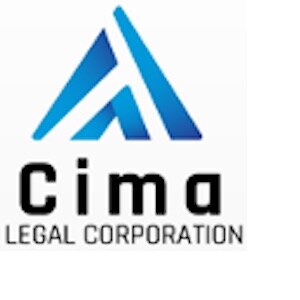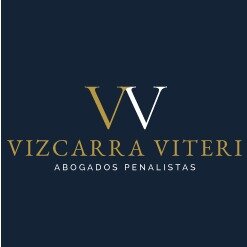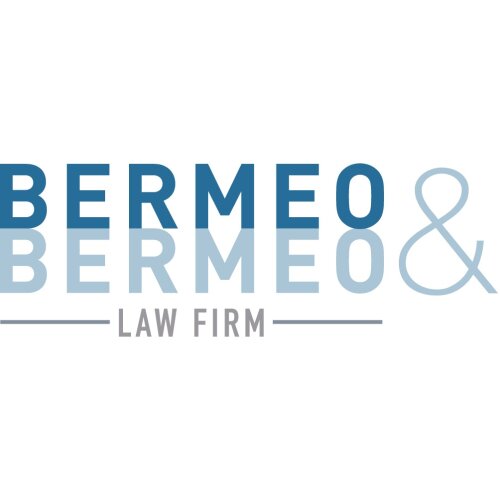Best Corporate Governance Lawyers in Quito
Share your needs with us, get contacted by law firms.
Free. Takes 2 min.
List of the best lawyers in Quito, Ecuador
About Corporate Governance Law in Quito, Ecuador
Corporate Governance refers to the system of rules, practices, and processes by which companies are directed and controlled. In Quito, Ecuador, the framework seeks to balance the interests of a company's many stakeholders, such as shareholders, management, customers, suppliers, financiers, government, and the community. Ecuadorian law places increasing emphasis on transparency, accountability, and the ethical conduct of businesses, especially for publicly traded companies and those engaged in significant commercial activities. The legal landscape in Quito aligns with international standards while maintaining specific requirements that reflect the country’s economic and legal context.
Why You May Need a Lawyer
Many individuals and businesses in Quito require legal advice related to Corporate Governance for various reasons. Common situations include:
- Establishing a new corporation and ensuring its governance structure complies with Ecuadorian law
- Handling mergers, acquisitions, or restructuring that require adherence to governance best practices
- Drafting or reviewing shareholder agreements, bylaws, and board resolutions
- Addressing shareholder disputes or conflicts within management
- Responding to regulatory requirements and government investigations
- Ensuring compliance with anti-corruption, transparency, and accountability standards
- Assessing risk management and internal control systems
- Managing corporate disclosures and reporting
- Implementing or reviewing codes of ethics and conduct
- Preparing for or conducting annual shareholders’ meetings
Because the consequences of regulatory non-compliance or governance failures can be significant, consulting a lawyer ensures that your business is protected and operates within the legal framework.
Local Laws Overview
Corporate Governance in Quito is primarily governed by the Ecuadorian Companies Law, the General Companies Law (Ley de Compañías), and relevant regulations issued by the Superintendence of Companies, Securities, and Insurance (Superintendencia de Compañías, Valores y Seguros, or SCVS). Some key aspects include:
- All companies, especially public ones, must have documented governance structures detailing the roles and responsibilities of directors, officers, and committees
- Annual shareholders’ meetings are mandatory and must follow strict notification and quorum procedures
- The board of directors is generally responsible for management oversight and accountability to shareholders
- Certain transactions, such as related-party deals or capital increases, require explicit shareholder approval
- Companies must disclose relevant financial and non-financial information to regulators and, in some cases, the public
- Compliance with anti-money laundering, anti-corruption, and fair competition norms is closely monitored
- There are specific procedures for resolving disputes between shareholders or between shareholders and management
- Companies listed on the stock exchange must adhere to additional regulations overseen by the stock market supervisory authorities
Understanding and applying these laws can be complex, making professional guidance especially valuable.
Frequently Asked Questions
What is Corporate Governance?
Corporate Governance is the set of processes, laws, and institutions that guide how a company is directed and controlled. It involves the relationships among the company’s management, board, shareholders, and other stakeholders.
Is Corporate Governance mandatory for all companies in Quito?
While the strictest governance standards apply to public companies and those regulated by the SCVS, all companies in Quito must adhere to basic governance principles as outlined in Ecuadorian law.
What are the consequences of non-compliance with Corporate Governance laws?
Non-compliance may result in penalties, fines, loss of business licenses, reputational damage, or even criminal liability for directors and managers.
How often must shareholders meet, and what are the requirements?
Shareholders must meet at least once a year in a general shareholders’ meeting. There are legal requirements for meeting notifications, quorum, and voting that must be strictly observed.
What information must companies disclose to regulators and shareholders?
Companies must disclose financial statements, changes in management, corporate resolutions, and, for regulated entities, periodic reports that detail compliance and risk assessments.
Can a minority shareholder propose changes to the company’s governance?
Yes, minority shareholders have legal rights to propose agenda items at shareholders’ meetings and can challenge company decisions if their rights are violated.
How are disputes between shareholders usually resolved?
Disputes may be resolved through internal mediation, direct negotiation, or, if unresolved, by seeking intervention from the courts or arbitration bodies as specified in the company’s bylaws.
Are there specific anti-corruption obligations for companies in Quito?
Yes, Ecuadorian law requires companies to adopt and implement policies to prevent corruption, money laundering, and unethical business practices.
Do foreign-owned companies have different governance requirements?
Foreign-owned companies must comply with the same governance laws as local companies, though additional notification and reporting obligations may apply.
How can a lawyer help with Corporate Governance compliance?
A lawyer can conduct governance audits, draft compliant policies, advise on best practices, represent your interests in disputes, and ensure your company meets all legal and regulatory obligations.
Additional Resources
For more information and assistance with Corporate Governance in Quito, consider consulting:
- Superintendence of Companies, Securities, and Insurance (Superintendencia de Compañías, Valores y Seguros - SCVS)
- Ecuadorian Institute of Corporate Governance (Instituto Ecuatoriano de Gobierno Corporativo)
- Public Notaries and Legal Chambers in Quito specializing in corporate law
- Chamber of Commerce of Quito (Cámara de Comercio de Quito)
- Universities with law faculties offering corporate governance training and events
These institutions can provide guidelines, official forms, courses, and contact information for specialized professionals.
Next Steps
If you or your business require legal assistance with Corporate Governance in Quito, a prudent approach is to:
- Review your company’s current governance documents and structures
- Identify areas of potential risk or non-compliance
- Compile relevant documentation such as bylaws, shareholder agreements, and meeting minutes
- Contact a qualified corporate lawyer or legal firm in Quito with expertise in Ecuadorian Corporate Governance
- Schedule a consultation to discuss your needs and receive tailored legal advice
Proper legal guidance will help ensure your company’s operations, structure, and compliance efforts meet all local requirements, reducing risks and supporting sustainable business growth.
Lawzana helps you find the best lawyers and law firms in Quito through a curated and pre-screened list of qualified legal professionals. Our platform offers rankings and detailed profiles of attorneys and law firms, allowing you to compare based on practice areas, including Corporate Governance, experience, and client feedback.
Each profile includes a description of the firm's areas of practice, client reviews, team members and partners, year of establishment, spoken languages, office locations, contact information, social media presence, and any published articles or resources. Most firms on our platform speak English and are experienced in both local and international legal matters.
Get a quote from top-rated law firms in Quito, Ecuador — quickly, securely, and without unnecessary hassle.
Disclaimer:
The information provided on this page is for general informational purposes only and does not constitute legal advice. While we strive to ensure the accuracy and relevance of the content, legal information may change over time, and interpretations of the law can vary. You should always consult with a qualified legal professional for advice specific to your situation.
We disclaim all liability for actions taken or not taken based on the content of this page. If you believe any information is incorrect or outdated, please contact us, and we will review and update it where appropriate.
















